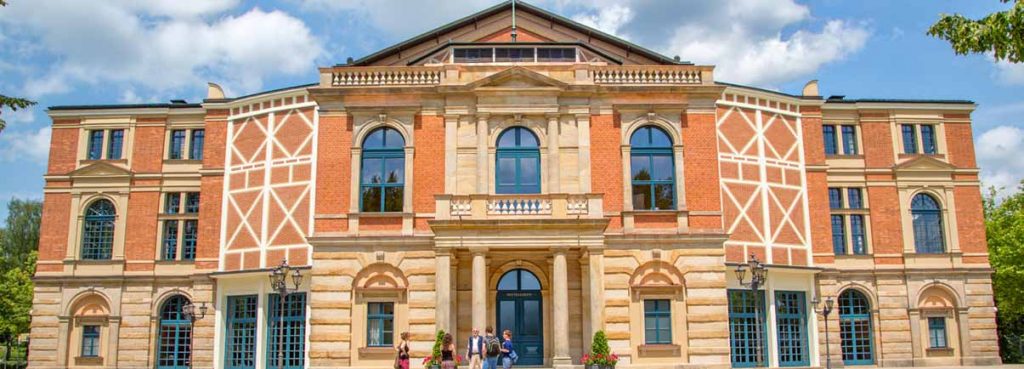The Bayreuth Festival
The Bayreuth Festival’s Legacy of Wagnerian Opera
The Bayreuth Festival stands as a unique beacon in the world of classical music, deeply rooted in the rich cultural tapestry of Germany. Conceived by Richard Wagner, one of the most groundbreaking composers of the 19th century, this festival was born from Wagner’s desire to present his works in an environment that matched his artistic vision. This led to the creation of the Festspielhaus in Bayreuth, a theater designed under Wagner’s meticulous specifications to optimize the audience’s acoustic and visual experience.
Since its inaugural performance in 1876, the Bayreuth Festival has been synonymous with artistic innovation and excellence, exclusively showcasing Wagner’s operas. The festival was a family enterprise from the start, with Wagner’s descendants continuing to shape its direction long after his death. This lineage of stewardship ensured that the festival remained true to Wagner’s original vision while also navigating the socio-political upheavals of the 20th century.

The Festspielhaus itself, with its revolutionary design, including a hidden orchestra pit, transforms Wagner’s operatic compositions into immersive experiences, marrying sight and sound in a way that was unheard of at the time of its construction. The festival’s focus on Wagner’s works provides a unique immersive experience, capturing the essence of his visionary compositions.
Over the years, the Bayreuth Festival has attracted some of the most prestigious talents in the world of opera, both on stage and in the conductor’s pit, maintaining its status as a premier global cultural event. It has also been a focal point for discussions and debates on the interpretation and understanding of Wagner’s operas, contributing to the ongoing evolution of his legacy.
The Bayreuth Festival continues to uphold Wagner’s artistic ideals, serving as a platform for nurturing new talent and fostering artistic growth. Its enduring legacy and continuous contribution to the arts underscore the festival’s significance not just in the realm of opera but in the broader context of cultural history.
